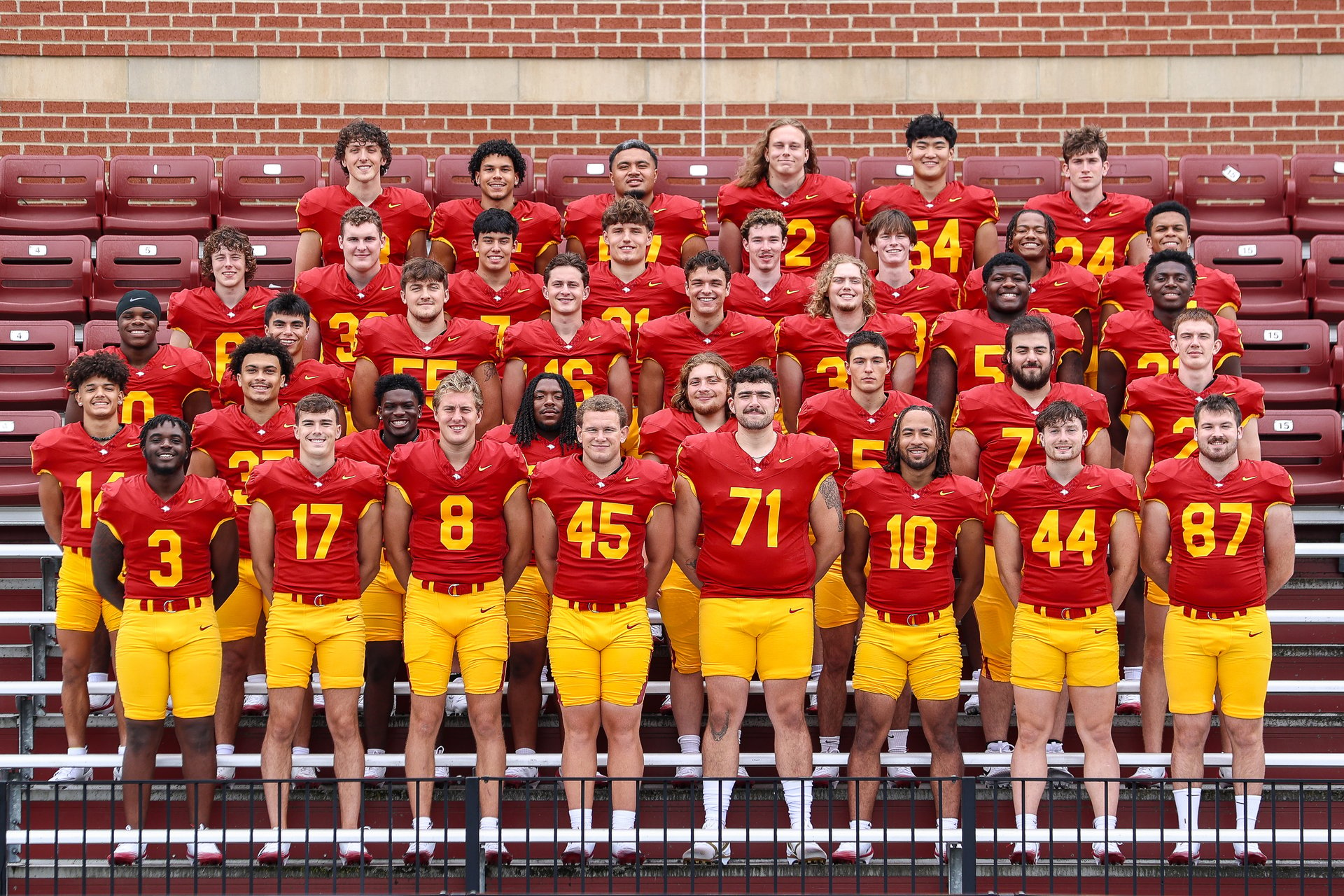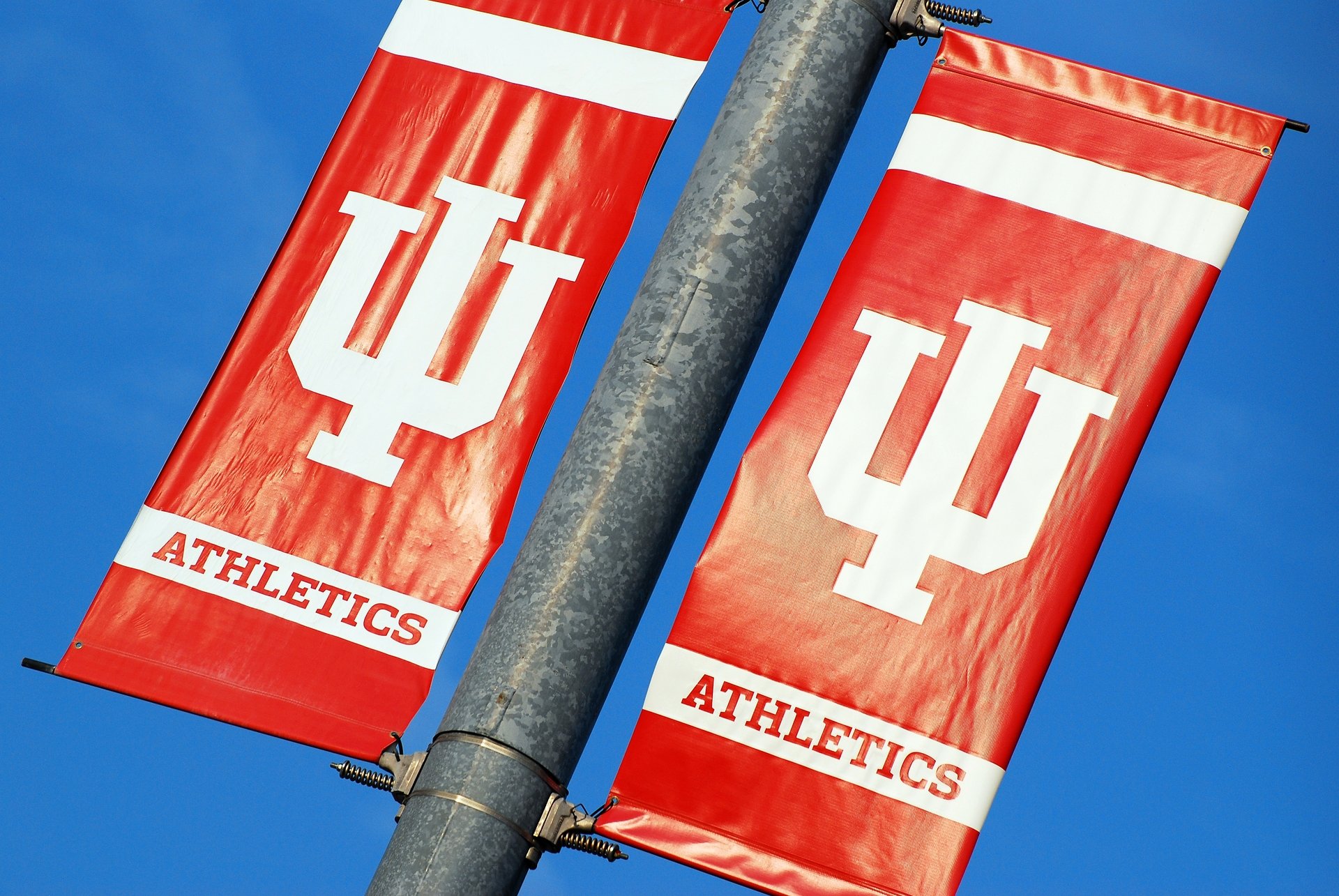Good morning, and thanks for spending part of your day with Extra Points.
Before I dig into a big newsletter today, I want to share a quick message from today’s sponsor, FanSpark:
Easy NIL for EVERY athlete in EVERY sport
NIL is changing the economics for student-athletes, but 85 percent of NCAA athletes are being left behind. Along with millions of sports fans.
That’s why we built FanSpark — a brand new, sports-only subscription content platform where every athlete in every sport can build a massive new fan-powered NIL revenue stream.
FanSpark is simple:
Athletes post exclusive social content for their fans
Fans and alumni pay a monthly subscription for that content
Athletes get 80% of the revenue, FanSpark gets 20%
Athletes retain full ownership and total control over their content, brand, and image
NO DMs, NO pay-per-view content, NO betting, and NO tips — just athletes and sports content
FanSpark is a game-changer for athletes in every sport, especially Olympic and so-called “non-revenue” sports that struggle with NIL opportunities.
Set up a quick 15-minute call to see FanSpark in action, and learn how it can benefit every student-athlete at your school.
I don’t normally pay a whole lot of attention to what college football coaches say during their regular mid-week media availabilities. But Nebraska coach Matt Rhule’s remarks on Thursday are worth all of our attention.
Earlier this week, Dallas Cowboys defensive end Marshawn Kneeland died by suicide. With that tragedy on his mind, Rhule gave an impassioned speech on athlete mental health. Lincoln Journal Star columnist Amie Just transcribed those remarks, which I’ll quote here:
"Seeing the tragic news out of Dallas today, understand that none of us know what people are going through. That's why I think we all should be careful about what we say to people. I think we should be careful what we tweet about people. I think we should be cognizant of what everyone's going through.
"I told our players they should take their headphones off in the cafeteria and sit down with someone and be like, 'How you doin', man? What's going on with you?'
"... It's just awful, awful, awful news. I've given the eulogy for players of mine who've had the same thing happen. You just never know what people are going through.
"I will forever, for the rest of my life, think about the time that I saw Adrian Robinson right before he took his own life. I saw him on campus and ... I was like, 'I need to catch up with Adrian.' And a week later, he left this world and a month later I was giving the eulogy. I wish in my life, I could go back and just stop and say, 'Hey, how you doing?'
"I know it's not what you asked, but it's on my heart. I just shared with the team like, it's a time in this world for us to be kind to people."
"Our generation of kids — my kids — they all just say, ‘Yeah, I’m fine. I’m straight.’ You really gotta unearth it.
"I look at road trips and travel and I look at time together at practice as chances to impact young people’s lives and try to be around them. I would encourage everybody today, with your own kids or people you work with, just to check on them, because that young man scored a touchdown just a couple days ago.
"And on the outside, you’d think he’s at the pinnacle. But he’s dealing with something, and I don’t know what it was. But I pray for him — him and his family.
"That's the weight of coaching young people today. They're going through a lot — way more than I went through growing up. But yeah, it's a sad, sad story, a sad fate. I'm praying for him.
"But I also know this. There's probably someone on my team going through something very similar. In what ways can I be there for them? Can we all be there for them? I think that's the blessing we have of having another week together, so I'm grateful for it. I've challenged our guys all week to be great teammates — to rally together, to come together, and not just for TJ but for every single guy on this team.
"... That's what we're trying to build. And it's maybe old school, it's not in vogue anymore. Everything's about the transfer portal and rev share. But I still think young people probably need people that care about them. That's never more evident today."
I think Rhule is absolutely right.
I’m very glad to see that the idea of being “aware of mental health” has become more commonplace in college athletics, as well as the rest of American society. Other coaches, like Ryan Day at Ohio State, have taken aggressive and public stands about trying to prevent suicide, meeting athletes where they are and providing support. I think this is critical, and I applaud every program that takes this seriously.
Here’s the thing I think many folks intellectually understand but don’t always get. You can be a high achiever, physically fit and professionally successful and still feel deeply … hopelessly … depressed. You do not need to carry yourself like Eeyore in public to be struggling. Darkness and despair can come for anybody, even the extroverted and successful.
I think Rhule is particularly on-target when he points to a remedy and a challenge. Occasionally, folks will carry their depression like a big-ass neon sign, but they usually don’t. And if you ask somebody if they’re doing okay, most of the time, they’ll say they are. To build a relationship of trust, to help somebody feel vulnerable enough to be honest … requires you to know that person. To dig. To be there. And that takes time.
In a world where you face truly immense pressure (as a college athlete, especially in a fishbowl like Nebraska), where you’re still trying to figure out your own personal identity and where it’s easy to be particularly isolated, I can understand why college athletes could be at risk for all sorts of significant mental health challenges.
But Rhule also mentions something else I think is just critical. I’m even gonna paste it again:
“… I've challenged our guys all week to be great teammates — to rally together, to come together, and not just for TJ but for every single guy on this team.
"... That's what we're trying to build. And it's maybe old school, it's not in vogue anymore. Everything's about the transfer portal and rev share. But I still think young people probably need people that care about them. That's never more evident today."
Like I said, bringing down our self-defense barriers and allowing ourselves to heal, and to be healed, takes time and trust. If the industry moves to an increasingly and explicitly transactional world, it will be harder and harder to develop and maintain that trust. There won’t be time. And that’s the way most workplaces are.
I can’t speak for Rhule. But most of the head coaches and college sports administrators I’ve gotten to know entered the profession because they deeply love being able to mentor and connect with young people. They may love winning, love the chalkboard battles, love the paychecks, the glory and everything else that comes with it … but when you’re making $6 an hour at West Bumblefart Tech in Division II, it’s the relationship part that gets you out of bed in the morning.
I don’t know a magic solution to maintaining that connection in the modern college sports world. I know many athletic directors who struggled with those changes well before NIL, as their jobs pushed them out of locker rooms and behind desks and spreadsheets.
But I do know this. I lost my dad to suicide when I was 19, after a long struggle with myriad mental illnesses. One thing that kept me going … through high school, through college, and into adulthood … was knowing there were so many other folks in my life who loved and cared about me. The kinds of people who could help me turn off my own internal self-destruct button. I had lots of dads, uncles, cousins and brothers who weren’t blood relatives. I still do. You probably do, too.
I pray that my girls have the luxury of having those people in their lives and that they’ll grow up to be that figure in the lives of others. That’s how you fight against the darkness that creeps up in many of us. That’s how you move the earbuds out of the ears and force folks to engage with reality. That’s how you win.
I pray we all do.
Here’s what else we did this week:
After filing lots of FOIAs, I published data we obtained from about 20 schools on alcohol sales from September. Among the schools I have information for, Nebraska sold the most units and generated the most revenue. If your school wasn’t listed, or you think I cooked the books for a variety of reasons, fear not. I filed, like, 90-plus FOIAs on Wednesday to get updated numbers through October across FBS AND FCS … AND info on hot dog sales. … So to the Associate ADs who got my request and are now digging through spreadsheets … I’m sorry. I’m not trying to be a pain. I’m just trying to do some #data #driven #journalism.
I also talked to folks at JMU to understand why the program is doing a partnership with Marvel that will include Dukes football players wearing helmets with various superheros on them. What do you think about this idea?
Coaching buyouts are exploding, even in the revenue sharing era. My theory? Money isn’t real.
In case you haven’t noticed, we’ve refreshed our website! I think everything is cleaner and more organized, but I’d love to know what you think. If nothing else, it’s much easier for you to play our computer games now! We have three, and we’ve updated all of them multiple times this week.
There’s a great story on NIL Wire about what roster management looks like at an elite D-II program, Ferris State. You might have heard of the Bulldogs these days.
We’ll have more Extra Points Bowl updates next week, plus more journalism, more tweaks to Extra Points Library and other cool announcements. We can do all of this because of the support we get from our advertising partners, our university partners …and you, the subscriber. If you enjoy Extra Points, please consider a paid subscription, which makes this business profitable.
It’ll certainly make it sting less to fork over $140 bucks to Oregon to get their updated beer sale data.
Thanks for reading, friends. Be good to another, and I’ll see you on the internet.


















